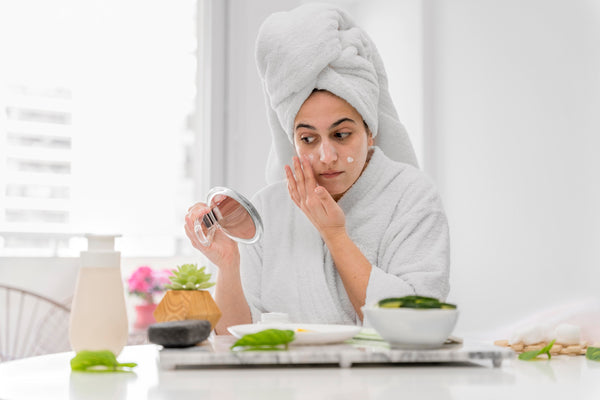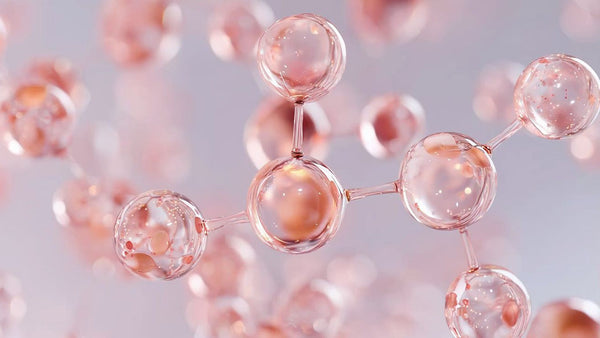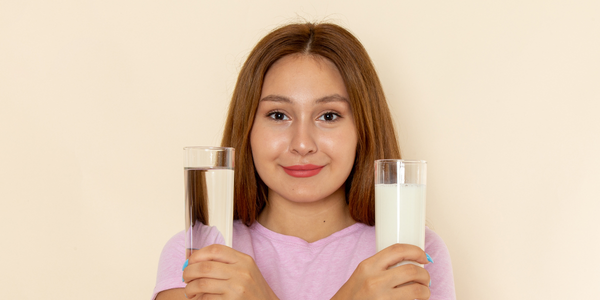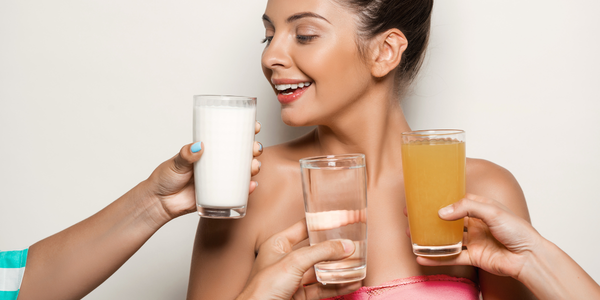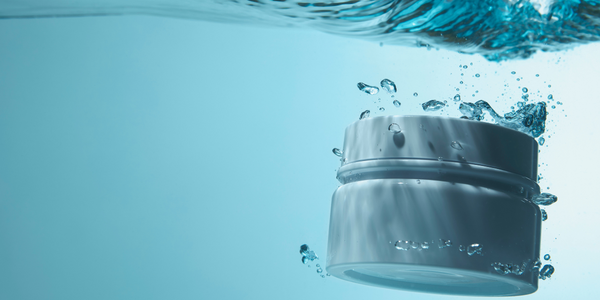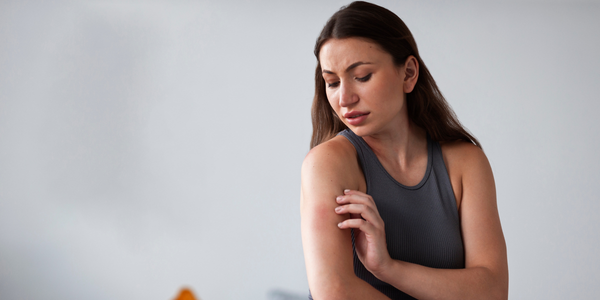Aging is an intrinsic part of one’s life that nobody can escape. While it has an impact all over your body, it is the most apparent on your skin. Skin aging is characterized by features like loss of glow and elasticity, wrinkling, pigmentation, and dryness. This organ is impacted by intrinsic and extrinsic factors such as your diet, genes, lifestyle, personal habits, pollution, exposure to the sun, and the like. If you are on the lookout for tips for younger-looking skin as you age, then here are 5 different ways of doing so.
Natural ways of younger looking skin
‘How to look young?’, is a question we often ask ourselves as we age. Read on to find out how.
- Drinking plenty of water gives you radiant-looking youthful skin. Water aids in all important body functions such as digestion, circulation, absorption, and excretion. When any of these functions take a beating, it tends to impact the skin in some way or the other. When the body is devoid of adequate amount of
- , it causes the skin to become dry and flaky, which further causes the skin to wrinkle and lose its elasticity and glow.

- When it comes to glowing, youthful
- , nothing can beat a bowl of green leafy vegetables. Green leafy vegetables are home to essential nutrients and antioxidants that play a vital role in adding to the skin's radiance. You can either prep yourself a delicious salad or add them - spinach, kale, lettuce and the like - to your sandwich, traditional Indian dishes, soups, and more. If not, then you can have our very own
- (a multivitamin from 39 farm-fresh greens, veggies, fruits, and antioxidant-rich superfoods). Just drop a tablet into your glass, watch it fizz, and sip on the delicious drink to get your daily dose of daily greens!

- If you want unblemished skin and complexion, add citric fruits to your diet. Vitamin C naturally gives your body’s collagen (a protein known to give structure to your skin, joints and bones) a boost. Vitamin C is a one-stop
- for several health issues such as water retention, skin damage, acne, and dry skin. So, next time you are complaining of dull skin, add fruits like papaya, strawberries, cherries, orange, grapefruit, kiwi, pineapple, and more to your diet.

- Exposure to the sun with zero protection can result in some serious damage to your skin. Sunscreens act as the first line of defense against premature aging as they filter out harmful ultraviolet rays that are detrimental to your skin health.
- of SPF 30 and above, which are water-resistant, are the best ones to use.
Additionally, ensure that you wash your face twice during the day as dirt and bacteria can clog pores, irritate the skin, and trigger breakouts. Consume good fats as they contain omega-3 fatty acids that are good for the skin, exercise regularly as it imbues the skin with the oxygen needed for collagen production, and manage stress as the stress hormone cortisol can cause inflammation in the body, which may affect collagen production and eventually skin health.
References
- Palma, Lídia et al. “Dietary water affects human skin hydration and biomechanics.” Clinical, cosmetic and investigational dermatology vol. 8 413-21. 3 Aug. 2015, doi:10.2147/CCID.S86822 (https://www.ncbi.nlm.nih.gov/pmc/articles/PMC4529263/)
- Pullar, Juliet M et al. “The Roles of Vitamin C in Skin Health.” Nutrients vol. 9,8 866. 12 Aug. 2017, doi:10.3390/nu9080866 (https://www.ncbi.nlm.nih.gov/pmc/articles/PMC5579659/)
- SUNSCREEN FAQS: American Academy of Dermatology (https://www.aad.org/public/everyday-care/sun-protection/sunscreen-patients/sunscreen-faqs#.UeSPueAZz_Y)
- Samad, Nur, Sikarwar, Archana: Collagen: New Dimension in Cosmetic and Healthcare, International Journal of Biochemistry Research & Review (https://www.researchgate.net/publication/309723872_Collagen_New_Dimension_in_Cosmetic_and_Healthcare)
- Huang, Tse-Hung et al. “Cosmetic and Therapeutic Applications of Fish Oil's Fatty Acids on the Skin.” Marine drugs vol. 16,8 256. 30 Jul. 2018, doi:10.3390/md16080256 (https://www.ncbi.nlm.nih.gov/pmc/articles/PMC6117694/)
- Garatachea, N et al. “Physical Exercise as an Effective Antiaging Intervention.” BioMed research international vol. 2017 (2017): 7317609. doi:10.1155/2017/7317609 (https://www.ncbi.nlm.nih.gov/pmc/articles/PMC5457745/)
- Chen Y, Lyga J. Brain-skin connection: stress, inflammation and skin aging. Inflamm Allergy Drug Targets. 2014;13(3):177-190. doi:10.2174/1871528113666140522104422 (https://www.ncbi.nlm.nih.gov/pmc/articles/PMC4082169/)













